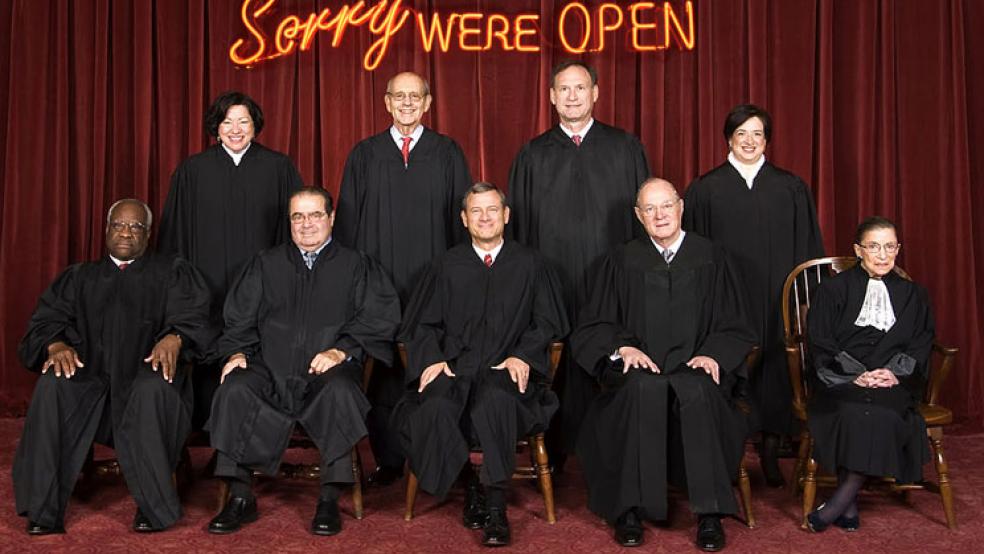Though much of the federal government is still shut down, the Supreme Court is open for business.
The justices are back on the bench today for the first time since June when they issued a historic ruling expanding the rights of same-sex married couples.
Here are the five big cases to watch:
1. Presidential Recess Appointments
The National Labor Relations Board v. Noel Canning will test the constitutionality of President Obama's three recess appointments to the National Labor Relations Board. The appointments were questioned when Noel Canning, a Pepsi-Cola bottling firm based in Washington state, sued in the D.C. Circuit to overturn an NLRB order that found the firm had unlawfully refused to enter a collective bargaining agreement with the Teamsters, according to Bloomberg.
The panel of judges said the decision was legally supportable but it couldn't be enforced because the Obama recess appointments were invalid since they were made when the Senate wasn't technically in recess. The upper chamber wasn't actively working, but instead, convening "pro-forma" sessions every few days to block the recess appointments.
The NLRB argues that the appointments were constitutional and that the Senate cannot use pro-forma sessions to thwart appointments. Oral arguments have not yet been scheduled.
2. Citizens United II: Campaign Finance Limits Revisited
The Court's 2010 ruling on the Citizens United case allows corporations and labor unions to contribute unlimited amounts of money, as long as the spending is independent of the candidates.This time the case, McCutcheon v. Federal Election Commission, focuses on whether there should be a limit on direct, individual contributions to candidates and political parties.
Under current law set by the 1976 case Buckley V. Valeo, a person can donate a maximum of $2,600 to a candidate in a 2-year election cycle and a total maximum of $48,600 to all candidates. They can also donate a maximum of $32,400 to a national political party and $5,000 to a political committee, and a total maximum of $74,600 to PACs and parties. The Court is only questioning whether the overall amounts -- not the individual limits -- are constitutional. Oral arguments will begin Tuesday.
3. State Affirmative Action Bans
In June, the Court considered the question of whether it's constitutional for public universities to use race-conscious college admissions plans, but the case returned to the lower court. Now, in the case of Schuette v. Coalition to Defend Affirmative Action, the Court will determine whether Michigan voters were entitled to ban the use of race in selecting students. The Court previously struck down similar measures on the ground that they had unfairly recast the political ground rules.
4. Reproductive Health Clinic Buffer-Zone Law
In the case of McCullen v. Coakley, No. 12-1168, the Court will decide the constitutionality of a Massachusetts law that restricts protests near reproductive health care facilities. The Court had previously upheld a Colorado law in 2000 in Hill v. Colorado.
5. Legislative Prayer
In the case of the Town of Greece v. Galloway, the Court will decide whether it is constitutional for the town of Greece, NY to open its monthly board meetings with a prayer. Lawyers for Susan Galloway and Linda Stephens say, "The case is not about the ability of legislators to acknowledge God or seek divine guidance. It is about the right of citizens to participate in local government without being required to participate in sectarian prayers."
The Obama administration, however, has backed the town of Greece, arguing that the Supreme Court's 1983 decision in Marsh v. Chambers makes clear that the long history of such legislative prayers in the country serves as convincing evidence that such prayers do not violate the Establishment Clause, according to Slate.





